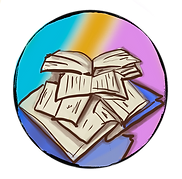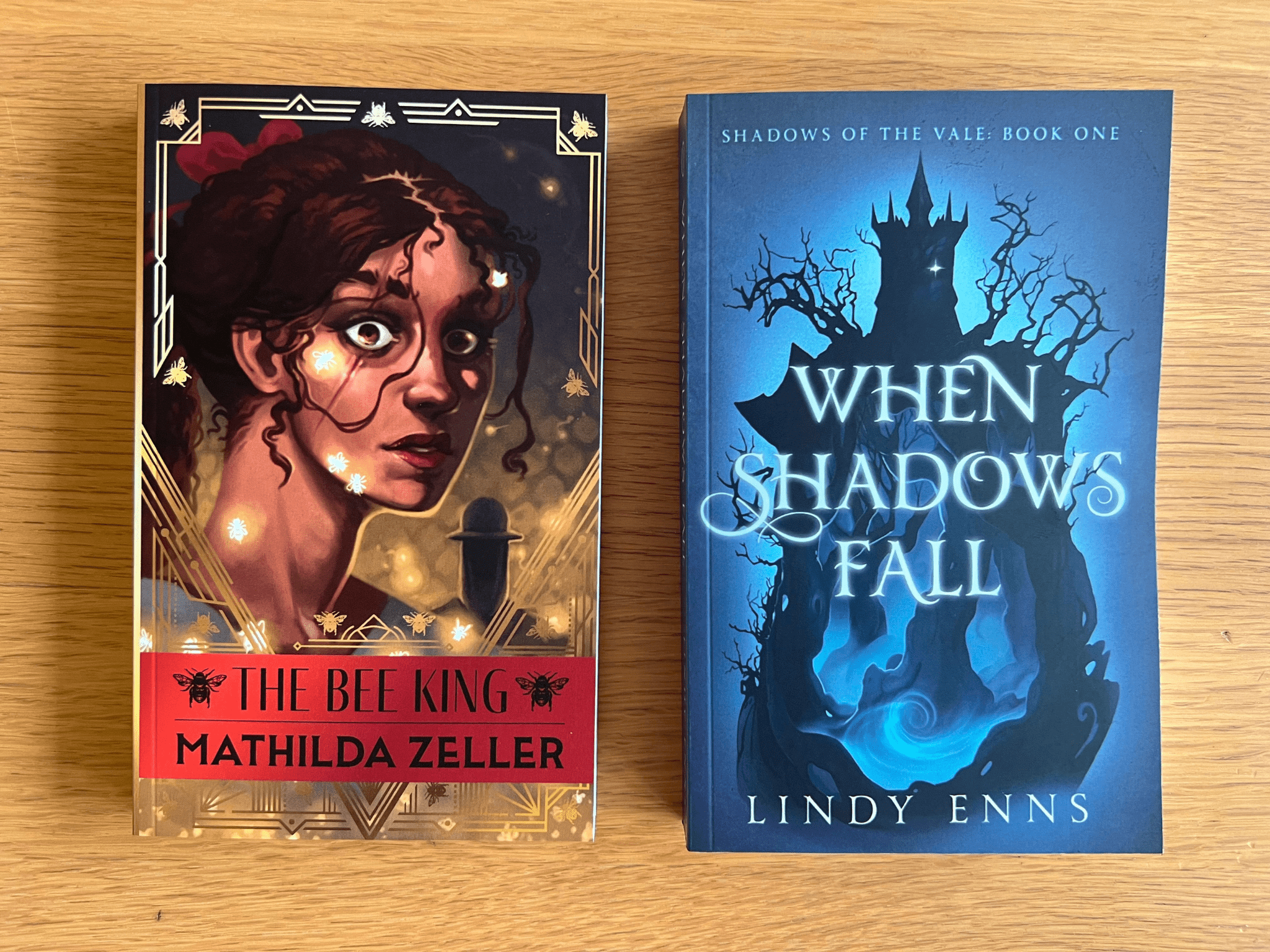STEEN
I’ve always had an interest in stories and storytelling. In fact, one of my earliest memories of writing a sequential story was for a Sonic the Hedgehog comic book I did with a friend when I was a kid, and I have no doubt it was the best Sonic story anybody could ever read.
In all seriousness, I studied Film & TV Production at university, where I specialised in screenwriting. It was during this time that my love of storytelling and understanding of narrative technique, tropes, and structure started really developing as I got to grips with writing on a deeper level. Without falling in love with movies and screenwriting, I don’t think I would have found my way to writing novels.
It’s only now that I can look back on the path taken that I can see how intricately connected seemingly chaotic moments and decisions actually were, and how each was pivotal in bringing me to where I am now.
You see, back in the long, long ago of 2014, I released an indie short film called First Date that was accepted into a few film festivals. It won some awards and was instrumental in giving me the confidence to pursue and commit myself to creative pursuits—especially after a few misfires and projects that, sadly, didn’t go anywhere.
However, there was one festival in particular that featured First Date and were interested in having me be on a few panels: Gen Con in, of all places, Indianapolis.
So, I booked a flight to Indianapolis and travelled from sunny old England to a place I never thought I’d visit. I genuinely had no idea that trip would change my life, creative endeavours, and passions.
Now, in the months running up to First Date’s release and subsequent festival push, I’d been trying to put together a superhero comic book called Temporary. It was going to be a six-issue miniseries, and I already had an artist on board to bring the project to life. Everything seemed to be all systems go…until it wasn’t.
Out of the blue, the artist dropped out to pursue his own work. Fair enough, right—though it did leave me in a lurch as I had no connections within the comic book world and didn’t have the slightest idea about where to look for new artists.
But I knew that there was something in Temporary’s story, in its characters, that I wanted to explore, to wallow in, to share.
I didn’t want the idea to die. I didn’t want it to merely exist as a series of documents in a folder on my hard drive, forgotten.
And then there was Gen Con 2014.
Between being on panels and the screening of First Date, there was, unsurprisingly, a lot of downtime. It was during this downtime that I came across something I’d never really considered attending before: writers’ symposiums.
Listening to trad and indie authors share their experiences fuelled a flame in me—one I would foster and grow as the universe seemingly provided a moment of resolute clarity: turn Temporary into a novel.
Not many people can easily pinpoint the moment they knew they wanted to be an author. I’ve seen plenty of interviews where the author explains that they’ve always wanted to write ever since they were a small child and whatnot. Nothing wrong with that answer, obviously, but with that backstory, especially if a few decades have passed, the ‘moment’ is most likely lost to time.
For me, however? The moment that captured my imagination, that started my journey to becoming an author?
Gen Con 2014 and its writers’ symposiums.
From there came Temporary, Steen, my pandemic horror short story, I Must Scream on Deaf Ears, and, coming soon, my dystopian, post-societal novel, Burden.
And that’s just the start.
I’ve always been a city kid. I grew up near a major city, and when my family left for the United Kingdom, we moved to a suburban town in South East London. On clear days, you could see its iconic skyline from the top of a nearby hill, so I’ve always had an affinity for cities and London.
Being able to easily access the city like that with friends to go to gigs, explore places like Camden, and get lost in Central London during my formative years were key experiences that carried on into my time at university, so when wanting to write a demonic thriller, setting it in London made the most sense. Given the city’s long, important, and bloody history, it was a no-brainer, honestly.
But it’s not just Central London.
I specifically incorporated Greater London—those areas that live in the shadow of the city—into the story to share not only my appreciation and personal history with London and its outskirts but to also confront and dissect the elements I’ve always disliked or struggled with.
I wouldn’t say my opinion or views of the city changed as I was writing Steen. It’s not a romantic version of London, despite certain scenes framing the city through a quasi-idealised lens. There’s plenty of grime, dirt, and crime, both in London and in the novel. Even Steen’s living situation is representative of London living and how difficult it can be right now.
Experiencing London as a teenager into adulthood helped frame and shape my connection with it because, for all of the city’s wonderful elements, there’s also the bad. For every gig, writer or director event, Q&A, film festival, play, or trip to Forbidden Planet, there’s the knowledge of what also goes on: phone theft, muggings, assaults. All the horrible stuff. Things that sadly exist everywhere and in every major city.
Ultimately, London evolves. It transforms and changes with the times and, very often, leads the way. The city is as beautiful as it is gritty, as exciting as it is boring depending on where you are and where you look, which I really wanted to capture. But every iota of that place is steeped in history.
Writing Steen helped me get to grips with my relationship with the city, especially as an adult, and although I no longer live in London or Greater London, my love and affinity for it persists. I have no doubt my attempts to depict a grounded version of the city and its outskirts will continue to be a core part of Steen’s stories going forward.
Making enough to pay for a meal for me and my family with money earned from my books. That was pretty special.
Turns out we need to eat more than one meal though, so if you, dear Your Paper Quest subscriber, are interested in reading my other books or can convince your reading friends to check me out, please do!
Temper your expectations and only go down the rabbit hole for the right reasons, especially if being an indie writer is your chosen path. It isn’t easy. From writing the damn thing to obsessive editing, multiple rewrites, marketing, and cover design, this is neither easy, quick, nor cheap. There may also be a stunning lack of support from people you thought would be in your corner—and a surprising amount of support from people who will surprise you! Your mileage may vary, though.
But it is also undeniably creatively fulfilling and rewarding. When those first sales come in…when those first positive reviews get added…when readers sign up for your newsletter (which you can do on my website at www.stevetendo.com #CheapPlug), when people reach out to you to talk about your writing, your process, your stories, and what it meant to them…it’s a phenomenal feeling.
Conversely, when sales drop or plateau, when your sales ranking dips or your book isn’t getting any traction…it can be demoralising as hell.
Obviously, we all hope we could be another Ryan Cahill within our chosen genre, but although achievable (the dude did it after all, and major props to him!) it isn’t simple or fast. It takes time and commitment to (and I’m paraphrasing one of my all-time favourite bands here) put the work in, plant a garden, and try to stay afloat.*
Another bit of advice I’ll share is this: listen to your story.
I don’t mean have a disjointed voice dictate it to you robotically. I mean, when you’re plotting (if you plot) and are revising the story beats or character arcs, do they feel harmonious? Do they sing to you? Do they organically connect and allow the story to unfold in a smooth and believable way?
And when you’ve put your story through that stress test, when you’re writing it or rewriting it for the umpteenth time, does it still feel the same way, or are there moments, scenes, or choices that felt good at the time, that made perfect sense, that suddenly don’t fit? That suddenly feel like a gear catching as you shift?
Because I can tell you when I’ve been revising plots or rewriting stories, certain moments I felt confident about have absolutely felt that way, and it doesn’t do well to ignore that gnawing sensation when you inevitably encounter them.
That’s your story talking to you, and it’s always best to listen.
Last bit? Don’t forget to promote your social media links and website so people can find you and your books.
Incidentally, you can visit www.stevetendo.com or follow me on Instagram, Facebook, or Twitter/X @stevetendo.




